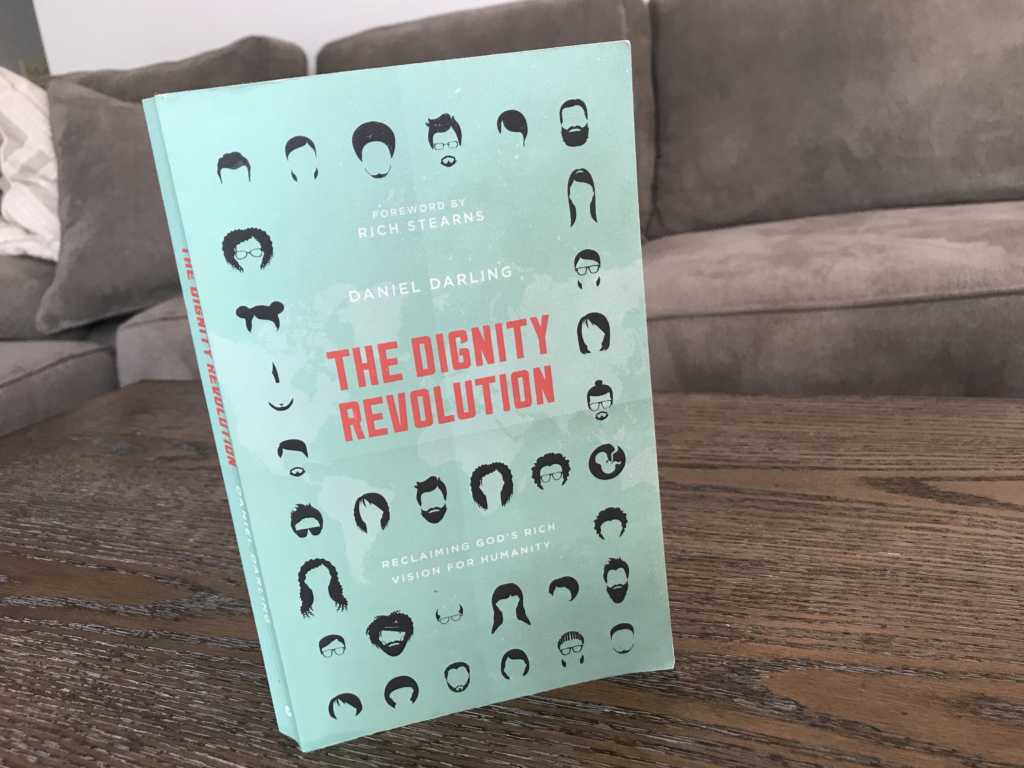Their mug shots glared at me from my Twitter feed, beneath a headline announcing a toddler had ingested meth, fentanyl and oxycodone. He was found unconscious after his mother and a boyfriend had passed out from drug use. I began tweeting the link with commentary about what awful people they were to allow this to happen — but I stopped myself.
Just minutes earlier, I’d been reading a compelling book about human dignity. “The Dignity Revolution” by Daniel J. Darling reminds us that every single person was made in the image of God and bears that mark, regardless of their actions or behavior.
It’s difficult to acknowledge the dignity of people who would neglect a child in such a horrific way. And yet, we are called to do so — to recognize the pain, the sin, the fall — that would lead someone to be in this position.
Darling’s book reminds readers that the dignity of human beings is immutable — from womb to tomb, we are all created in love and possess inherent value by virtue of the God who made us.
“Fallen we may be, failures we all are, but dignity we still own,” Darling writes.
Prior to reading “The Dignity Revolution,” I might have spouted off a tweet demeaning these individuals without a second thought. But the book was a quick admonition to me that we are all sinners who have fallen short of the glory of the God. Certainly those who would hurt a child are among the most despised — understandably so — and yet, even they are God’s beloved children, with access to the healing grace that only He can provide.
If a book can compel one to acknowledge the dignity of society’s “worst,” how much more then can it influence readers to consider the dignity of people who are so often outcast through no fault of their own? I speak of people with disabilities, the unborn, the homeless, the mentally ill, the immigrant.
The book covers everyone — from the tiniest of humans developing in the womb, to the impoverished immigrant living on the street, to the incapacitated elderly dying in a nursing home.
“Remember, the Bible teaches that our dignity is bestowed on us by our Creator, not earned or maintained or measured by us through our capacity or given to us by society,” Darling writes.
Darling also notes that while media and society tend to present prisoners, illegal immigrants, the poor or mentally ill as “other” or “less” in some ways, as Christians, we must remember that “victims, perpetrators and outsiders are people, made in God’s image, no more or less deserving of his love and people’s kindness than we are.”
The book isn’t just about recognizing the dignity in others — but also in ourselves. In a world where we are encouraged to “love” ourselves unhealthily and excessively, “The Dignity Revolution” explains that certain brands of self-love are actually dehumanizing because human beings were made to serve and worship God. This is not a call to hate oneself, but to remind us that as image-bearers, we are called to self-sacrifice, not self-worship.
“Here is the great paradox: it is in denying ourselves that we find ourselves, because it’s in denying the temptation to worship ourselves, build our own identities and bow down to our feelings that we are able to enjoy worshipping God, bow down to Him and live out our true identity as his image-bearers,” writes Darling.
The book also notes that part of respecting the dignity of humanity is participating in politics and being active in shaping ideas that can help to empower and aid our neighbors. Though many Christians often want shy away from the political scene, it’s impossible to escape the reality that political policies have an effect out how we do this. Whether you believe more government intervention is needed to help those in poverty, or you believe that greater freedom and faith in free markets is the way to help, your vote and voice help push forward the dignity of others.
The most important takeaway from this book is that every single person was made in God’s image, and not one of us is worthy but for the grace of God. I didn’t send out the tweet about the bad parents. I said a prayer for them and for their child because, as Darling writes:
“It is hard to deny someone’s humanity if we are praying for them. Next time you read or hear of a criminal whose behavior you cannon countenance and whose motivations you cannot even comprehend, why not commit to praying for them? Praying for someone reminds us that they are a person, rather than a problem or a prison number.”
“The Dignity Revolution” serves as a salient reminder as we navigate the troubled waters we encounter daily in a fallen world. To get your copy, click here.


